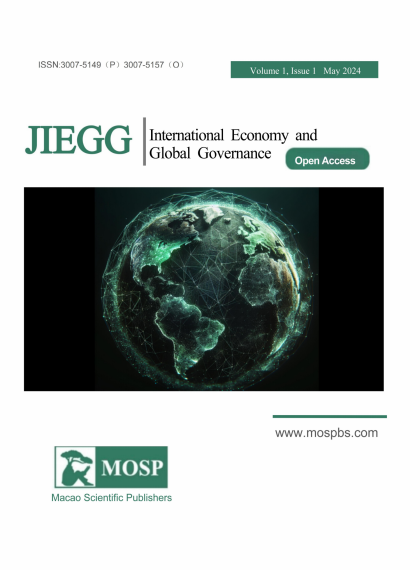-
Gong Yunmu. (2022) The return of the concept of sovereignty in the digital age and the EU 's digital governance. European study (03), 18-48 + 165 + 6.
-
Feng Yiran: "Fusion of supranationalism and intergovernmentalism: EU's new defense construction initiatives and prospects", "International Security Studies", Issue 5, 2020.
-
Fang Lexian, Di Chongguang: "New progress in EU security and defense construction: permanent structural cooperation and its meaning", "Contemporary World and Socialism", Issue 3, 2018.
-
Li Xia, Shi Di: "Deepening of European Financial Integration", "China Finance", Issue 20, 2018.
-
Wang Jue: "From Technocrats to Political Bureaucrats: Research on the Politicization of the European Central Bank", "Foreign Social Sciences", Issue 3, 2020.
-
Zhong Yichen, Luo Yingjie: "Research on European Integration: New Public Management Reform in European Integration - Taking the Supranational Political Agency in the EU Judicial and Internal Affairs Fields as an Example", "European Studies", Issue 3, 2019.
-
Cai Cuihong, Zhang Ruoyang: "The EU Digital Transformation Strategy under the Discourse of "Technological Sovereignty" and "Digital Sovereignty", International Political Studies, No. 1, 2022.
-
Gong Yunmu: "The Return of the Concept of Sovereignty in the Digital Age and EU Digital Governance", European Studies, No. 3, 2022.
-
Bellanova, R, Carrapico, H and Duez, D, Digital/sovereignty and European security integration: an introduction, European Security, 2022, pp337-355.
-
Blancato, FG, The cloud sovereignty nexus: How the European Union seeks to reverse strategic dependencies in its digital ecosystem, Policy and Internet, 2023.
-
Floridi, L. (2020). The fight for digital sovereignty: What it is, and why it matters, especially for the EU. Philosophy & technology, 33, 369-378.
-
Csernatoni, R, The EU's hegemonic imaginaries: from European strategic autonomy in defence to technological sovereignty, European Security, 2022, pp395-414.
-
Hummel, P., Braun, M., Tretter, M., & Dabrock, P. (2021). Data sovereignty: A review. Big Data & Society, 8(1), 2053951720982012.
-
Pohle, J., & Thiel, T. (2020). Digital sovereignty. Pohle, J. & Thiel.
-
Braud, A., Fromentoux, G., Radier, B., & Le Grand, O. (2021). The road to European digital sovereignty with Gaia-X and IDSA. IEEE network, 35(2), 4-5.
-
Gong Yunmu: "The Return of the Concept of Sovereignty in the Digital Age and EU Digital Governance", published in "European Studies", Issue 3, 2022.
-
Ma Guochun: "New Trends in the EU's Construction of Digital Sovereignty and Its Impact", in "Modern International Relations", Issue 6, 2022.
-
Budnitsky, S., & Jia, L. (2018). Branding Internet sovereignty: Digital media and the Chinese–Russian cyberalliance. European journal of cultural studies, 21(5), 594-613.
-
Couture, S., & Toupin, S. (2019). What does the notion of "sovereignty" mean when referring to the digital?. New media & society, 21(10), 2305-2322.
-
Lambach, D. (2020). The territorialization of cyberspace. International Studies Review, 22(3), 482-506.
-
Mueller, M. L.(2020). Against sovereignty in cyberspace. International studies review, 22(4), 779-801.
-
Emmanuel Macron, "President Macron Gives Speech on New Initiative for Europe," Élysée, 26 September 2017, https://www.elysee.fr/emmanuel-macron/2017/09/26/president-macron-gives-speech-on-new-initiative-foreurope.en.
-
Jean-Claude Junker, "State of the Union 2018: The Hour of European Sovereignty," European Commission. 12 September 2018, https://ec.europa.eu/info/sites /default/files/soteu2018-speech_en_0.pdf.
-
Ursula von der Leyen, " A Union that Strives for More-My Agenda for Europe," European Commission, 14 July 2019, https://ec.europa.eu/info/sites/default/files political-guidelines-next-commission_en_0.pdf.
-
Couture, S., & Toupin, S. (2019). What does the notion of “sovereignty” mean when referring to the digital?. New media & society, 21(10), 2305-2322.
-
Jennyfer Chrétien, Etienne Drouard, Guillaume Buffet, et al. Guillaume Buffet, et al, "European technological sovereignty", February 15, 2022.
-
Cheng Hongyan & Guo Xiaqing. (2020).Exploration of communication alienation caused by artificial intelligence. Research on Dialectics of Nature (09), 70-74.doi : 10.19484 / j.cnki.1000-8934.2020.09.013.
-
Zhang Jian. (2022). EU Security Strategy : Origin, Evolution and Policy Trends. Contemporaneous International Relations (05), 1-32.
-
Weingast, Br. (1995).The Economic-Role of Political insitutions: market-preserving federalism and economic development. Journal of Law, Economics, & Organisation, 1-31.
-
Zheng Chunrong & Jin Xin. (2022).The background, path and challenge of EU digital sovereignty construction. Contemporary World and Socialism (02), 151-159.doi : 10.16502 / j.cnki.11-3404 / d.2022.02.013.

